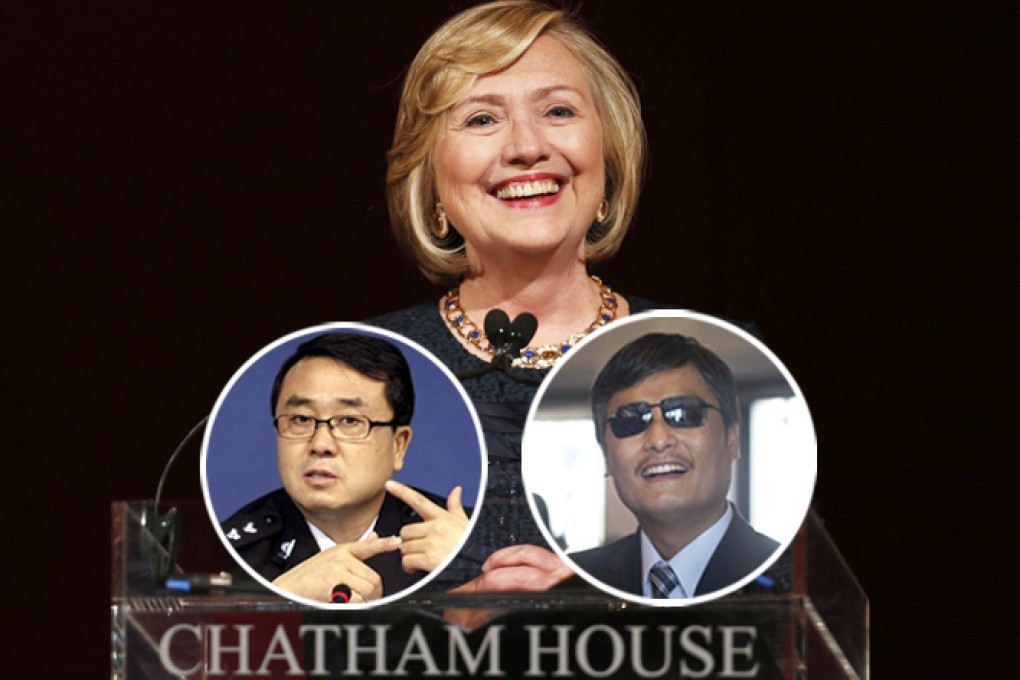Hillary Clinton sheds light on Wang Lijun and Chen Guangcheng asylum requests

Former US secretary of state Hillary Rodham Clinton has revealed how two diplomatic crises that threatened the stability of ties with China were defused last year.
At the Chatham House think tank in London last week, Clinton spoke about the events surrounding the flight of former Chongqing police chief Wang Lijun to the US consulate in Chengdu in February last year.
She also discussed the tense stand-off with Beijing after blind legal activist Chen Guangcheng took refuge in the American embassy two months later. In their early talks on the matter, State Councillor Dai Bingguo told her: “We never want to talk about this man again with anybody.”
Video: Hillary Clinton reveals details of Wang Lijun and Chen Guangcheng asylum seeking cases
Clinton described the situation in Chengdu as alarming when police loyal to Wang’s boss, former Politburo member Bo Xilai, surrounded the consulate.